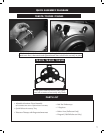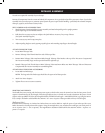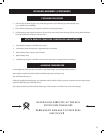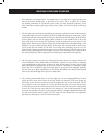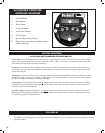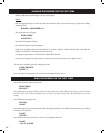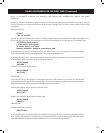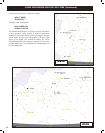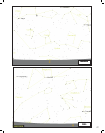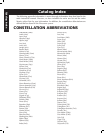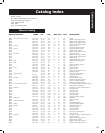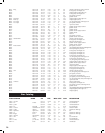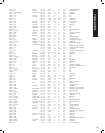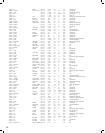
15
NOTE: IF AN OBJECT IS BELOW THE HORIZON, THE DISPLAY WILL PERIODICALLY DISPLAY THE WORD
“HORIZON.”
SCROLL UP or SCROLL DOWN to see other PLANETS in the list. Notice the display shows you directions to each object. But what
if you are a first time user wanting to find out more about the object? Wouldn’t it be nice to know what the object is before moving
the telescope?
PRESS ENTER when:
PLANET
3120 552 JUPITER
any other PLANET item is displayed. You will see a scrolling message telling you the coordinates for the object, how bright it is, how
big it is, what its proper name is, what constellation it is in, and a brief description of what the object is. For JUPITER it reads:
JUPITER fifth planet from sun.
Largest planet in solar system.
16 moons. Orbit is 11.86 years.
Diameter 143,000 km. Named for roman king of gods.
M
USING DISCOVERER FOR THE FIRST TIME (Continued)
Now imagine that you are a parent trying to impress your children (or vice versa). Ten minutes into your first observing
session you are already learning astronomical objects. This is a great educational tool !!!!
By pressing the BACK button, you move back to the previous level each time the button is pressed. Press the button three
times and you are back at the main level menu. The display will read:
SELECT MODE
EXPLORE 56
SCROLL UP or SCROLL DOWN to select
SELECT MODE
SKY TOUR 56
Press ENTER.
This mode will take you through the best and brightest objects for each month. If you have done the ALIGN STAR
alignment and entered the date, it will automatically take you to the current month. Don’t know what some of these obscure
objects and abbreviations mean? Just press the ENTER key for more information.
Press the BACK button until you get back to the main menu:
SELECT MODE
SKY TOUR 56
SCROLL UP or SCROLL DOWN until the display reads:
SELECT MODE
IDENTIFY 56
PRESS ENTER
This mode will default to the level
IDENTIFY ANY
By selecting this option with the ENTER key, it will IDENTIFY the object that you are currently viewing OR the closest
object to where your telescope is currently pointed. You also have the options to choose other types of IDENTIFY menus.
These will IDENTIFY the closest CLUSTERS, NEBULAS, etc. to your current telescope position.



